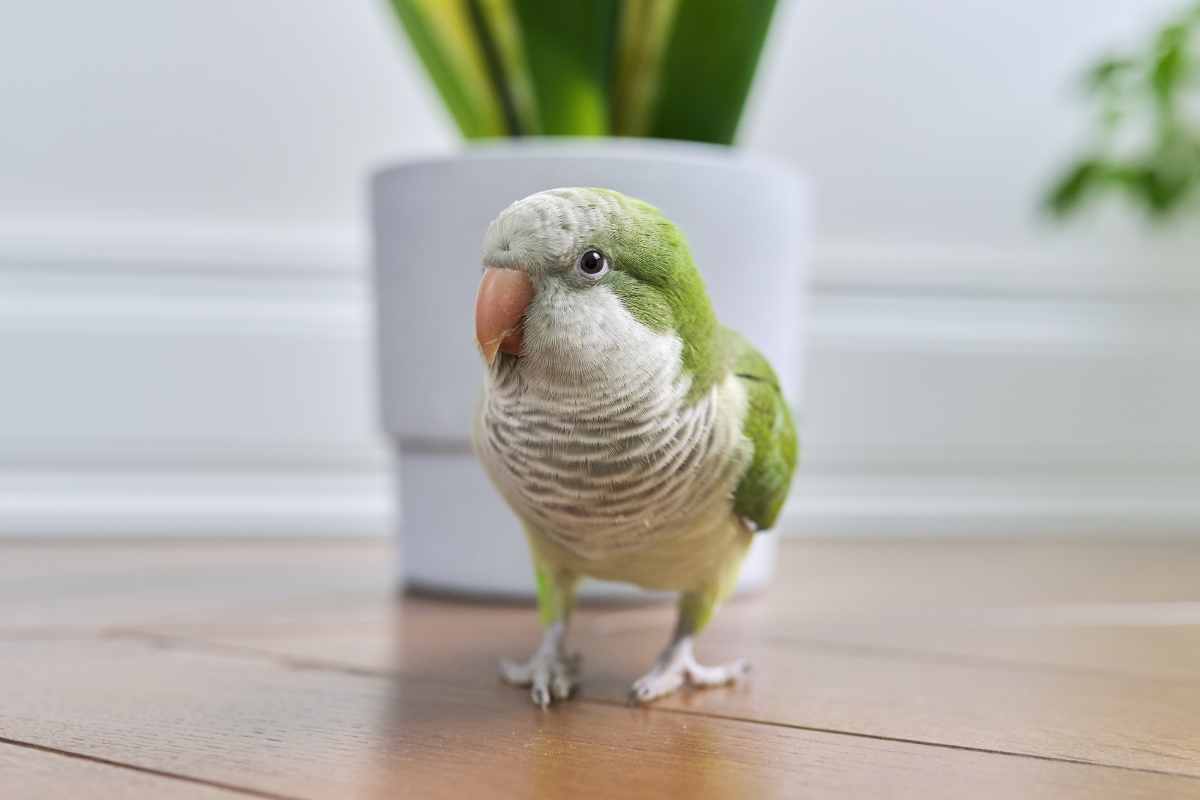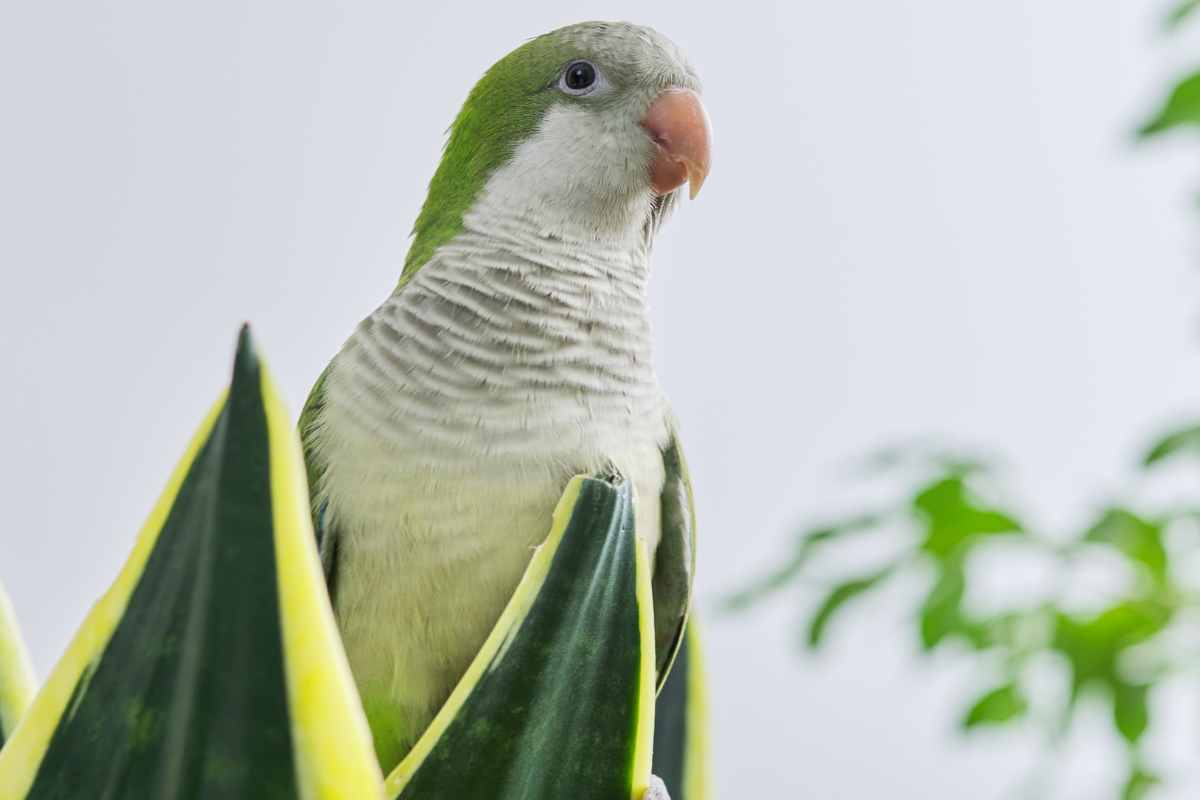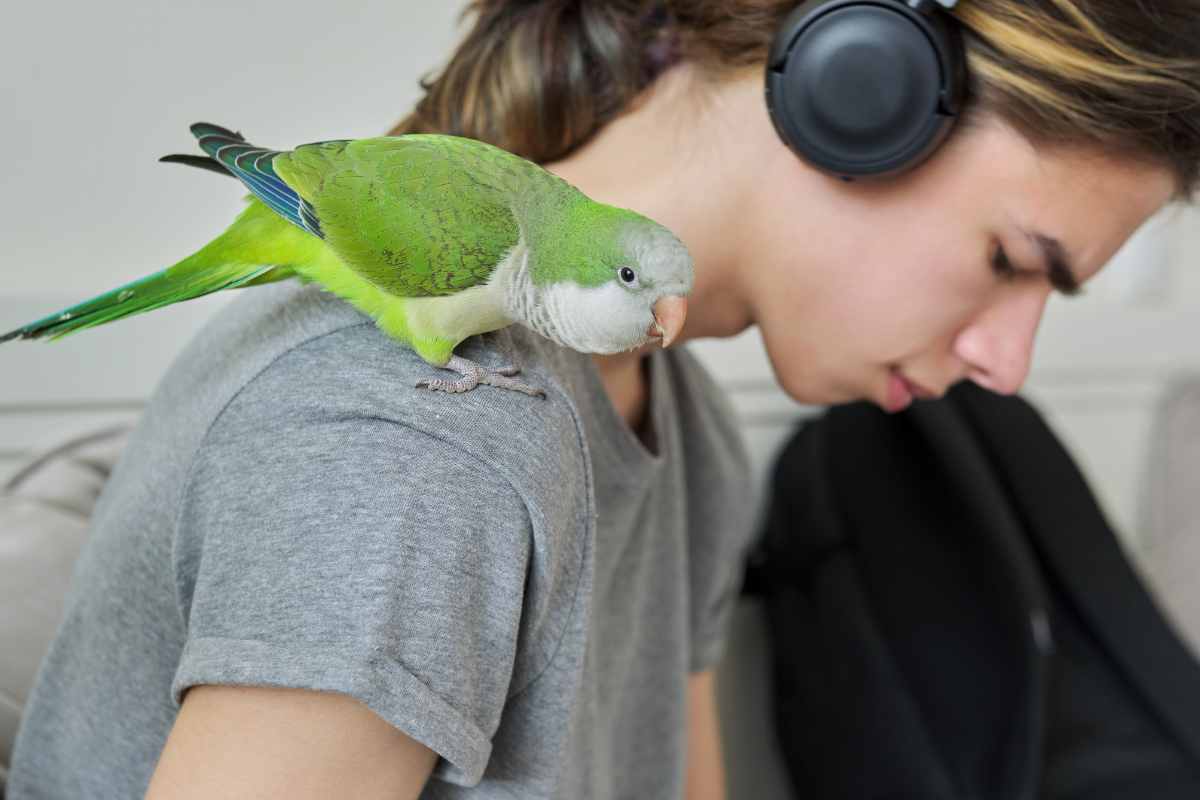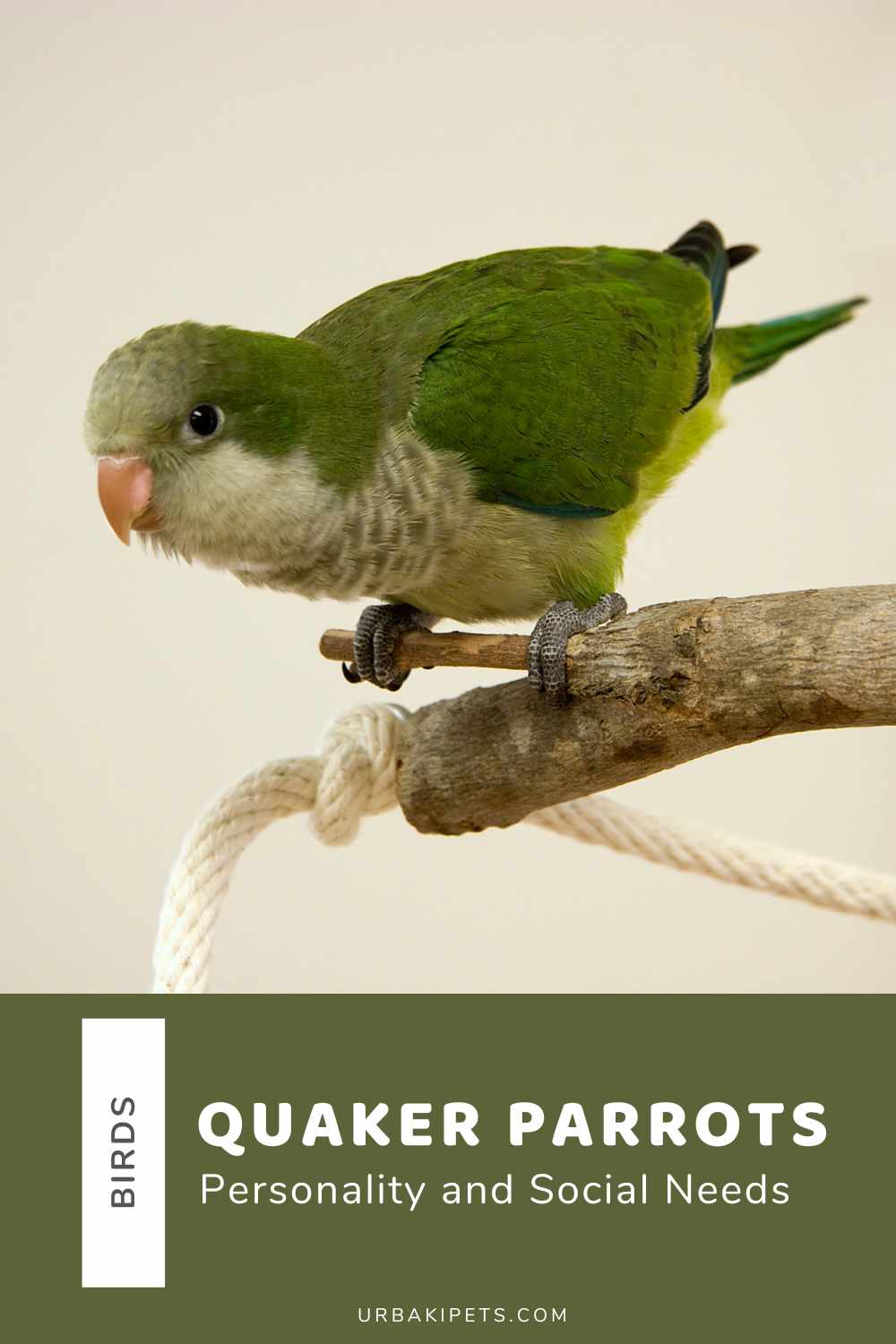Quaker Parrots - Personality and Social Needs

Quaker parrots are known for their outgoing personalities and their ability to form strong emotional bonds with their human companions.
As one of the most intelligent and talkative bird species, Quakers require a high level of mental stimulation and social interaction to thrive.
But what makes these charming parrots truly unique? In this article, we will explore the personality traits and social needs of Quaker parrots and how you can create a positive and fulfilling environment for your feathered friend.
Personality Traits of Quaker Parrots

Quaker parrots are often described as expressive and curious. They enjoy mimicking sounds and voices, making them excellent talkers.
However, their vocalizations can range from sweet whistles to loud squawks, especially when they’re feeling bored or neglected.
Understanding the subtleties of their behavioral cues can help you better interpret their emotions and needs.
These parrots are affectionate, often seeking attention and love from their human companions. They thrive on interaction and can form very strong bonds with their owners.
Whether they’re sitting on your shoulder or entertaining you with their playful antics, a Quaker parrot will always be looking for opportunities to engage with you.
The Social Needs of Quaker Parrots

As highly social birds, Quaker parrots require regular interaction to stay mentally healthy and emotionally balanced.
Without enough social contact, these parrots can develop destructive behaviors or even become depressed.
A Quaker parrot left alone for long periods may resort to chewing on furniture or plucking its feathers, which are clear signs of anxiety or loneliness.
To ensure your parrot's well-being, it is crucial to provide them with daily social interaction. This can include talking to them, playing with toys, or even teaching them new tricks.
Positive reinforcement is key to building a strong bond and encouraging your parrot to engage with you.
Stimulating Their Minds: Activities for Quaker Parrots

Mental stimulation is essential for Quaker parrots to stay happy and healthy.
These birds are incredibly smart and can get easily bored, which is why providing them with engaging activities is a must.
Some activities that will keep your Quaker entertained include:
Foraging games: Hide treats in toys or around their cage to encourage them to search for food.
Training sessions: Use a clicker to teach your Quaker new tricks or commands, such as waving or talking.
Interactive toys: Offer puzzles and toys that require problem-solving, such as treat-dispensing balls.
Incorporating these activities into your Quaker’s daily routine will help keep their mind sharp and prevent them from becoming bored or anxious.
Handling Territoriality: Tips for Managing Space

While Quaker parrots are generally social, they can also be quite territorial. This is particularly true when they feel their space or personal items are being threatened.
To manage territorial behavior, it’s important to:
Respect their space: Allow your Quaker to have a personal space where they can feel safe and secure.
Introduce new objects gradually: If you plan to add new toys or change their cage setup, do so slowly to avoid overwhelming them.
Provide consistency: A consistent routine will help your parrot feel more comfortable and less likely to become aggressive over their space.
Strengthening the Bond with Your Quaker Parrot

Building a strong bond with your Quaker parrot is vital for creating a happy and healthy relationship. Start by earning their trust with gentle, consistent interactions.
Here are a few tips to help strengthen your bond:
Talk to them regularly: Quakers love to hear their human’s voice, and consistent talking will help them feel more connected.
Use treats as rewards: Offer your parrot treats during training or good behavior to reinforce positive actions.
Respect their boundaries: Be patient and allow your Quaker to come to you when they are ready. Avoid forcing physical contact, as it could lead to distrust.
Conclusion
Quaker parrots are fascinating creatures with unique personalities and strong social needs.
By understanding their behaviors and providing them with the appropriate mental stimulation, social interaction, and positive reinforcement, you can create an environment where your Quaker parrot will thrive.
Remember, the key to a healthy relationship with your Quaker is consistent love, attention, and respect for their individual needs. Embrace these wonderful birds, and you’ll be rewarded with a loyal and affectionate companion for years to come.
Did you find this post useful or inspiring? Save THIS PIN to your PETS Board on Pinterest!


You may also like